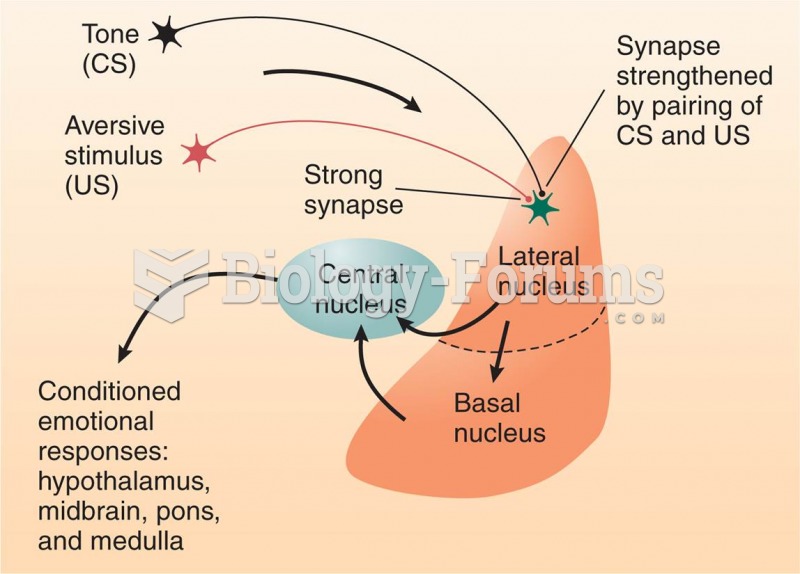Answer to Question 1
Psychological and personality characteristics can mediate the effects of exposure to stressors. Positive affect such as optimism, happiness, joy, and contentment enhance the parasympathetic modulation of heart rate, blood pressure, and other physiological stress reactions while negative emotions such as depression, hostility, anxiety, and cynicism accentuate the stress response. Hostility in particular has been implicated in several physiological disorders including coronary heart disease.
Perceived control is also important to stress level. A negative event that is perceived as controllable is likely to be less stressful than one that is perceived as uncontrollable. Perception of control over the environment seems to reduce stress effects.
The three characteristics of commitment (being involved in ongoing changes rather than giving up and feeling isolated), control (attempting to influence decisions and refusing to feel powerless), and challenge (viewing changes as opportunities) all appear not only to protect individuals against stress related illness, and actually helping them to thrive.
Social support moderates the impact of a stressor. Research suggests that social support may provide a buffer or protection against the health-damaging effects of stress. Additionally, perceived discrimination, cultural expectations, and conflicts with societal standards have an impact on health and can heighten the stress response.
Answer to Question 2
Psychophysiological disorders are physical disorders that have a strong psychological basis or component yet involve tissue damage (such as coronary heart disease), a disease process (e.g., immune impairment), or physiological dysfunction (e.g., asthma). The primary factor in developing these disorders is exposure to stressors, which are external events or situations that place a physical or psychological demand on a person; they can range from chronic irritation and frustration (like when your computer crashes) to acute and traumatic events (such as war, rape, or natural disasters). More specifically, we are constantly dealing with biological stressors (e.g., genetic inheritance or genetic predispositions that, when combined with environmental situations, can result in a psychophysiological disorder like asthma or heart disease); psychological stressors (e.g., cognitive functioning); social factors (e.g., lack of social support); or sociocultural factors (e.g., racial, gender, or age bias).
There are many ways to reduce one's risk for developing some of these disorders, or for dealing with them in a healthier fashion. These include living a healthy lifestyle, assuming an optimistic perspective, reducing hostility, creating areas of one's life where s/he has a sense of control, finding social support, developing one's sense of spirituality, and learning to relax.







